Vera and Donald Blinken Open Society Archives
Projects
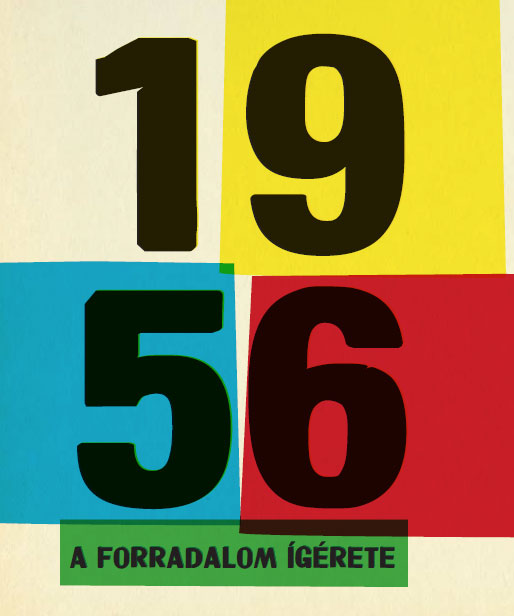
Project with the participation of the KARTA Foundation, Ustav pro Studium Totalitarian Rezimu, Bundesstiftung zur Aufarbeitung der SED-Diktatur, and the Blinken OSA at the Central European University aimed at collecting source materials in Poland, Germany, Czech Republic and Hungary – fragments of documents (leaflets, proclamations, speeches, chronicles, reports, etc.) and individual testimonies (diaries, memoirs, reports, letters etc.) on the common experience of the citizens of the former Eastern Bloc, which is the result of political thaw of 1956. The result of the project, an educational booklet is available on the Internet in English, German, Polish, Russian, Czech, Hungarian and Slovak on creative commons license.
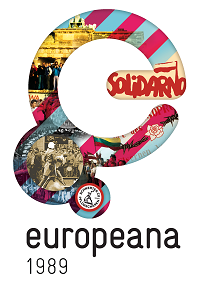
OSA is member of the 48-partner consortium to work on the Europeana Awareness project, which is a Best Practice Network of libraries, archives, and museums, as well as digital developers and innovators led by the Europeana Foundation and funded by the European Union under the Competitiveness and Innovation Framework (CIP).Europeana Awareness is designed to publicize Europeana to users, policy makers, and cultural heritage organizations in every Member State; to promote and encourage its use by a broad public for a variety of purposes (including research, learning, and tourism); to engage users via user generation of content, creation of digital stories and social networking; to develop new partnerships with four key sectors which are currently underexploited by Europeana: public libraries; local archival groups; broadcast organizations and open culture re-users (programmers, developers, researchers and activists); and to further encourage cultural institutions to continue to provide content.OSA will work specifically on the national public media campaign and the end-user engagement to generate new content by organizing collection days for personal archives and memorabilia related to the regime change in Hungary in 1989.
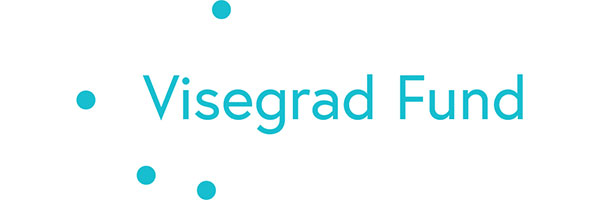
For a better and deeper understanding of the interdependent recent history of (the center of) Europe, the International Visegrad Fund offers 15 research fellowship grants annually in the Vera and Donald Blinken Open Society Archives at Central European University, Budapest on a competitive basis to support scholars who wish to conduct research in the holdings of OSA, and whose current research projects are relevant to the holdings and the given research priorities of the Fund and OSA.
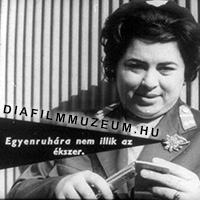
OSA actively collects digitized educational and propaganda filmstrips from the Cold War period. In Hungary and other Soviet Bloc countries filmstrips were a strictly controlled form of mass media which came to serve both educational and entertainment purposes, paralleling the rise of television in the West. Mass production started in the 1950s when the format was used primarily as a tool for propaganda to be shown at schools, universities, and workplaces. By the 1970s, the form had largely lost its political edge, devolving into "home movie"-style entertainment for children and family projection.In 1998, OSA brought the culture of filmstrips to the attention of the wider public with an exhibition titled Freeze Frames of Communism, which explored the social, political, and technological circumstances behind the phenomenon. In recent years, OSA has forged ties with local collectors and in 2006 agreed with the Neumann Digital Library to take over the hosting of the Virtual Filmstrip Museum (Virtuális Diafilmmúzeum) online catalogue and digital repository and to ensure long-term access to digitized filmstrip collections. We have recently reintroduced the site with an updated user interface and online cataloguing module and continue to showcase the material through periodic public screenings.
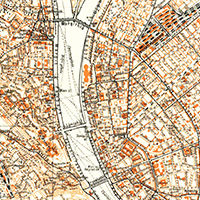
OSA and the Hungarian Contemporary Architecture Centre have joined forces in a project to introduce and make publicly accessible several dozens of 100-year-old Budapest buildings on April 9-10, 2011, the 100th day of the year. Using the centennial of OSA's Goldberger House as a pretext, we would like to introduce a new type of celebration in Budapest. Every year buildings that turn 100 years old will have the opportunity to open their doors to the public. The celebration will encourage tenants to get to know each other as they organize a public birthday party to reveal the hidden treasures of their buildings. To date we have listed 140 buildings erected in 1911. Most of them are residential, but several public buildings, such as schools, public health institutions, water towers, and museums are also included.
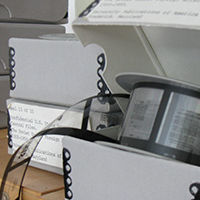
OSA has digitized from its library microfilm holdings over 10,000 declassified confidential or secret US State Department documents on the Soviet Union's relations with the US and other countries in 1955-1959. The material includes telegrams, airgrams, instructions, correspondence, inquiries, memos, situation reports, and translations received from and sent to diplomatic posts abroad. These microfilmed records, the predecessors of today's Wikileaks cables from the most heated Cold War years, are made public online for the first time on the alternative archival space Parallel Archive through the collaborative work of volunteers. We encourage you to help us disseminate these important historical documents.

Founded in 1991, the Central European University (CEU) is celebrating its 20th year as an internationally reputed teaching and research institution. OSA, as the repository for historic CEU records, is actively taking part in the 20th Anniversary Celebration. As its first contribution, OSA has prepared and installed an exhibition titled Building CEU, which will run intermittently throughout the year in the CEU Octagon area. The exhibition presents the history of two CEU buildings, the Monument Building (the Festetics Palace) and the Open Society Archives (the Goldberger House) up to and including the future plans for the University Campus. The story of the buildings is depicted through archival photos and architectural plans and includes background information on the architectural history and on the people who planned, built, owned, and lived and worked in these buildings. An online version will be available soon. OSA has also selected from among its holdings and digitized recordings of historically significant public lectures given at the CEU during its first 20 years and made these available on OSA TV. More OSA programs related to the anniversary celebrations will be forthcoming.
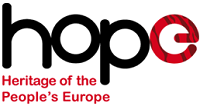
OSA is participating as a research partner and content provider in a three-year European Union project entitled the Heritage of the People's Europe (HOPE). HOPE is a Best Practice Network of archives, libraries, and museums that works in close cooperation with the Europeana digital library to improve access to highly significant but scattered digital collections on social history throughout Europe. The project will achieve its goal by: 1) promoting the adoption of standards and best practices; 2) relying on proven open source technologies to create a unified digital content repository service; 3) making metadata and content available through Europeana; 4) enhancing and extending labourhistory.net, the portal of the International Association of Labour History Institutions (IALHI); and 5) implementing a full-scale discovery-to-delivery model. The result will be an enabling infrastructure that could never have been achieved by any of the individual partner institutions, big or small, by itself.HOPE is supported through the European Union Competitiveness and Innovation Framework ICT Policy Support Programme on Digital Libraries.
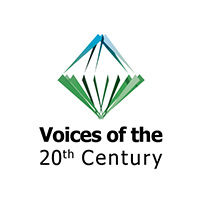
The Voices of the 20th Century Archive (Voices) project is led by the Institute of Sociology of the Hungarian Academy of Sciences in cooperation with OSA and the National Audiovisual Archive of Hungary (NAVA). The purpose of the project is to analyze how different types of interview material can be enhanced through digital technologies and re-used for further research. To this end, the Voices team will work closely with new qualitative research projects and collections as well as with undergraduate, graduate, and post-graduate university programs. The final Voices Archive will have three pillars: archiving, research, and public access and will include features such as audio transcription and machine-generated text, refined access, links to methodology resources, and tagging and annotation. The Voices team seeks to collaborate with similar domestic and international initiatives, including other archives, user networks, and partner institutions.
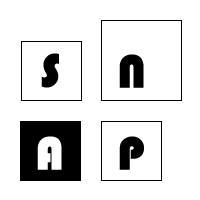
SNAP (Soros Network Archival Portal) is a portal comprising an institutional Digital Repository as well as Records Management Resources considered relevant to the ongoing work of the Soros foundations network. Resources include among other things practices and procedures, retention schedules, information on records management projects, and archival legislation from various regions.The SNAP Repository is a centralized virtual space allowing Soros foundations network staff to store and manage their unique permanent digital resources. Access is permanent in the sense that the OSA Archivum ensures the long-term preservation of the files and maintenance of the infrastructure. By collecting all the relevant documents of the Soros network in one place, the SNAP Repository is a powerful tool for preserving institutional memory and promoting the values of an open society in the long run.SNAP is a service offered by OSA Archivum to all Soros network organizations and programs.
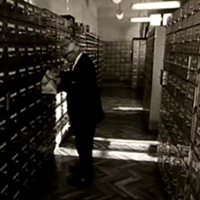
OSA is digitizing records on the structure and modus operandi of the Hungarian political police and other repressive organs of the communist regime. These have been obtained under strict scrutiny by private persons and researchers from various Hungarian archives, particularly from the Historical Archives of the Hungarian State Security and its predecessors. By uniting the fragmented, scattered and often artificially separated files, we hope to give a full picture of the activities and culture of the former state security organs.Over the past few years, OSA has digitized and published online several collections of state security documents. Among these are over 200 Educational and Propaganda Films from the film studio of the Hungarian Ministry of the Interior presented with three-minute viewable excerpts of each film, as well as over 10,000 pages of the Collection of Directives from the same ministry.
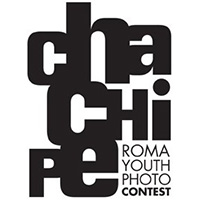
Chachipe is an international online photography competition organized by the Roma Initiative Office of the Open Society Institute and OSA under the aegis of the Decade of Roma Inclusion (2005-2015). The competition and its accompanying events, including the main exhibition at the Galeria Centralis, the award ceremony, and a traveling exhibition, are intended to combat visual stereotypes and to authentically portray the Roma as an integral part of their broader national communities. The competition is organized every two years; each competition highlights a novel perspective, targeting a particular group. Selected works from the contest have been put on display across Europe in cities from Brussels to Bucharest and also hosted in several smaller towns in Hungary with the help of the National Association of Local Municipalities (Települési Önkormányzatok Országos Szövetsége, TÖOSZ). The new competition will be announced on May 1, 2011.
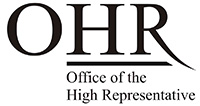
The Office of the High Representative (OHR) is an international agency overseeing the implementation of the civilian aspects of the 1995 Dayton Peace Agreement and coordinating the activities of the civilian organizations and agencies operating in Bosnia and Herzegovina. OSA is currently cooperating with OHR on a project to digitize their public archive for preservation and research purposes. The project covers 20,000 documents on the activities of OHR, half of which are currently available at the OHR Archives in Sarajevo, while the rest are being transferred on an ongoing basis to the OHR Archives from the various local and regional offices. Much of this material will be available for archiving and digitizing only after the formal closure of OHR.
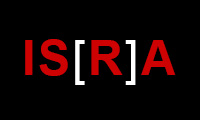
Run within the framework of the International Samizdat [Research] Association (IS[R]A), the Samizdat Text Corpora (STC) aims to bring together the various linguistic and regional bodies of samizdat to create a unified constellation of materials for scholarly research. The project rests on six pillars: Research; Rich Description; Integration; Network Mapping; Multiple Language Access; Community. As envisioned, the final product will comprise a union catalogue and digital repository of samizdat held by IS[R]A institutions and by individuals around the world and include tools for annotating texts and engaging in scholarly discussion with fellow researchers. The first stage, a project entitled Soviet Samizdat Periodicals (1956-1986), was initiated and supported by OSA and Dr. Ann Komaromi, through a grant from the Canadian Social Science and Humanities Research Council. The objective is to identify, locate, describe, and digitize Soviet samizdat periodicals created between 1956 and 1986 that are held in institutions in Europe and North America and to present our results online for research, education, and public debate.

OSA was one of the initiators and founding members of the Hungarian Chapter of the Open Document Format Alliance (ODF Alliance). ODF Alliance Hungary promotes the use of the international standard Open Document Format (ODF), encouraging research on its application and developing the Hungarian terminology to support its use. The use of ODF puts an end to dependence on suppliers of office software widely used today and at less expense allows anyone to create documents without license agreements, restrictions, and limitations, at the same time guaranteeing their long-term readability. ODF Alliance Hungary organized the 2010 OpenOffice.org Annual Conference (OOoCon2010) in partnership with the Central European University and Eötvös Loránd University.
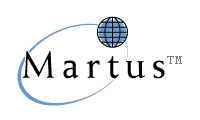
Since 2001, OSA has hosted a Martus server, a secure and remote safe to store and preserve information gathered by human rights activists and investigative journalists. The tool developed by Benetech allows users to create a searchable and encrypted database and back this data up remotely to their choice of publicly available servers. The Martus software is used by grassroots organizations, activists, journalists, attorneys, and others around the world to protect sensitive information and shield the identity of victims or witnesses who provide testimony on human rights abuses. Martus is Greek for "witness".The Martus software was designed in consultation with human rights groups to be Simple, Secure, and Searchable. The stored records are kept secret by default and are available only to their owners. However, users can choose to make selected records public. The Martus software and documentation are currently available in 8 languages: English, Spanish, Russian, French, Thai, Arabic, Nepalese, and Burmese. The system currently has over 130,000 reports uploaded by users. OSA provides accounts to individuals and organizations upon request. Please contact: info@osaarchivum.org.
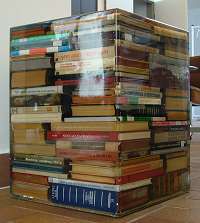
In 1995, OSA inherited 100,000 books on the history and economy of the Cold War period from the Radio Free Europe/Radio Liberty (RFE/RL). A large portion of that collection now forms the core of OSA's reference library while another portion has been donated to cultural institutions or offered gratis to the general public. The remaining 20,000 books, candidates for disposal, have been set aside for artistic projects, including our Concrete: Books Bound in Concrete exhibition held in June 2008 and more recently the Book Cube.The book cube itself is a public place object. 20 cubes have been made, standard in form but differing in content. The cubes were exhibited at 20 different cultural or academic sites, moving every year. The intention behind the project was to provoke public debate, performances, and programs on the relation of books to history and memory.
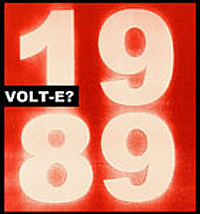
OSA teamed up with local archives, news agencies, and online journals in a one-year project to bring new sources of the Hungarian "annus mirabilis", the miraculous year, to the attention of the wider public. We selected, scanned, and put online transcripts of radio broadcasts from both sides of the Iron Curtain, press surveys, a chronology of events from the Hungarian News Agency (Magyar Távirati Iroda, MTI), the minutes of the Hungarian Socialist Workers' Party Politburo meetings, the daily operative reports of the Hungarian secret police, as well as transcripts of telephone calls to the Hungarian television in Budapest and the Hungarian desk of Radio Free Europe in Munich—day by day, from January 1 to December 31, 1989.In January 2010, the site was expanded to include the Dunagate Dossier, which attempts to reconstruct the most important events of the political scandal involving wiretapping and systematic shredding of state security documents by the help of transcripts of radio broadcasts, press surveys, news agency reports, and excerpts from documentary films.
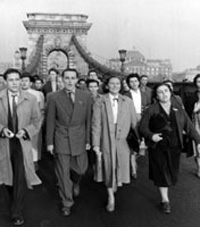
The 1956 Digital Archive is a digital collection dedicated to the 1956 Hungarian Revolution and developed by OSA in cooperation with Columbia University's Butler Library and the Hungarian National Library on the occasion of the 50th anniversary of the event. The scope of the project is to make crucial documents on the history of the revolution publicly available. Among these are the Blinken Collection, comprising the Columbia University Research Project on Hungary (CURPH) interviews with Hungarian refugees after 1956, and the Zwack Collection, a personal archive on the revolution. The archive continues to grow and currently includes several collections from the holdings of OSA and other institutions. The digital archive has been generously funded by Donald and Vera Blinken and supported by the United States Embassy in Budapest.The most recent collection in this project is the Hedervary Collection, the Documents on the Activities of the United Nations Special Committee on the Problem of Hungary, donated by Claire de Hedervary, the former Director of the Political Affairs Department of the United Nations.
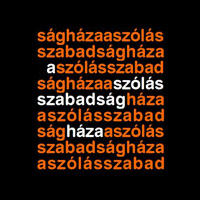
In 2007, in accordance with an agreement signed by the two governments, the United States returned Táncsics's prison to the Hungarian State. The building, located in the historic Castle District of Budapest, was used to detain the Hungarian journalist Mihály Táncsics, an advocate of free speech and hero of the 1848 Revolution. The site has been in the possession of the United States government since the end of World War II. In 2008, OSA initiated a public campaign to turn Táncsics's prison, a symbolic center of the struggle for the freedom of expression, into a museum, a memorial, and a public center devoted to information rights. We propose to use the space to conceptualize freedom of expression and free speech in modern terms and to explore access to, rights over, and the use and abuse of information in contemporary society.The campaign is currently suspended awaiting the renewal of premises promised to the United States government in exchange for the historic site.
The seminar was a three-year international research and educational project that brought together young scholars, educators, and professionals primarily from the former socialist countries to discuss the problems of alternative culture both in the past and in the current context of globalization. It provided a unique opportunity to discuss and debate alternative forms of arts and media worldwide and included such cross-disciplinary themes as: histories of alternative culture, the spaces and places of alternative culture, art and new forms of political expression, the politics of memory, collectivity in contemporary culture, feminism as a critical social theory, and from samizdat to bloggings. Alternative Culture Beyond Borders helped reframe the approach to the teaching and research of contemporary culture and resulted in the creation and enrichment of courses in several disciplines. The project was organized by the International Alternative Culture Center based on support from the Open Society Institute's Higher Education Support Program Regional Seminar for Excellence in Teaching (ReSET) and in collaboration with St. Petersburg State University, McMaster University, and OSA.
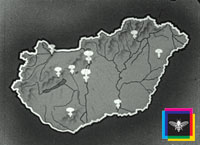
The aim of this project was to digitize and make available online Hungarian Cold War educational films on ABC (atomic, biological, chemical) warfare. Made between 1961 and 1973 by the Military and Sport Film Studio for the Civil Defense Alliance, the film series of nearly eighty pieces featured prominently in a campaign to educate the public in ways of protecting itself against weapons of mass destruction. While America and Western Europe have been processing their nuclear anti-propaganda materials for several decades, the same work is hardly under way in Hungary and Central Eastern Europe because the raw archive material is simply unavailable. It is hoped that this project will inspire similar initiatives in neighboring countries. Supported by the ERSTE Foundation.
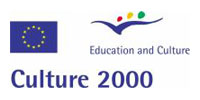
In 2004, OSA Archivum received support from the European Union Culture 2000 program to run a three-year cooperative project entitled "History After the Fall - The Interdeterminacy of the Short Twentieth Century". The complex project consisted in a series of seminars, workshops, and exhibitions. The participants focused, among other things, on the traditional and radical right of the inter-war years; the anti-Communist resistance movement; nationalism and the national question; foreign occupation; collaboration with repressive regimes; and poverty and welfare measures particularly as they relate to current public health policy.OSA Archivum carried out the project in cooperation with five research institutions specialized in the recent history of Central and Eastern Europe: the Romanian Institute for Recent History (Bucharest), the KARTA Center (Warsaw), the Institute of Contemporary History (Prague), the Hannah-Arendt-Institut für Totalitarismusforschung e.V. (Dresden), Civic Academy Foundation (Bucharest). The EU support was complemented by a grant from the Hungarian cultural organizations Nemzeti Kulturális Alap (National Cultural Fund) and Nemzeti Kulturális Örökségvédelmi Hivatal (National Cultural Heritage Ministry).
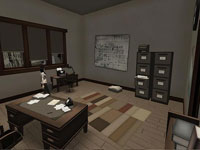
On May 30, 2007, OSA Archivum and the Swedish Institute opened Raoul Wallenberg's Office at the Embassy of Sweden in Second Life. The result was an interactive multimedia exhibit that not only has educational and humanitarian implications but also stretches the boundaries of what can be done with new technologies.Inside Wallenberg's Office, a replica of his Budapest office in 1944-45, visitors can listen to a performance of Wallenberg dictating his last, semi-fictional diplomatic report on January 16, 1945, the day before he disappeared. The unique and flexible environment allows visitors to explore Wallenberg's personal belongings and sift through and download the actual archival documents on display. Explanatory note cards and external web links offer further context. And of course, visitors can sit at Wallenberg's desk and discuss their impressions with other visitors in real time.

Between the two rounds of the 2002 parliamentary elections in Hungary, OSA Archivum publicly announced its intention to set up an archive of electronic campaign mail, inviting all recipients of email and cell phone text messages related to the parliamentary elections to forward them to designated accounts. A large number of people responded by forwarding messages supporting, criticizing, accusing, or parodying the parties and candidates standing for election. In 2006 OSA Archivum reopened its archive of electronic campaign letters, again inviting recipients of electronic messages related to the new parliamentary elections to forward these messages.The two collections are available on a dedicated website and together provide a unique snapshot of post-communist election campaigns. Messages were anonymized before being made available to the public. For English readers we offer translations of a selection of messages from 2002 along with a summary providing background information on the election and the personalities and parties involved. Based on the success of this project, the related Email Archive of the Civil Circles was set up in 2002 to collect and make public emails circulated by civil circles organized by the Nationalist-Conservative Coalition.
Political propaganda via electronic mail played an unprecedented role in the 2002 parliamentary election campaign in Hungary. OSA Archivum decided to collect this new, and in Hungary yet unknown, instrument of political persuasion and soon after the elections made our collection public as the Archive of Electronic Campaign Letters (see above).However, the campaigning did not stop with the elections. After the National-Conservative coalition lost the parliamentary elections in June 2002, former prime minister Viktor Orbán called his supporters to organize small civil circles in order to further the political aims and values of the opposition forces (the "true representatives of the nation") in local politics. Civil circles formed a nationwide network organized through the Demokrácia Központ (Democracy Center), located at the headquarters of the biggest opposition party, FIDESZ-Magyar Polgári Párt (the Alliance of Young Democrats – Hungarian Civil Party). The Democracy Center registers local civil circles and facilitates continuous contact between them, mostly by electronic mail. The vast amount of electronic mail is collected and put online by OSA Archivum. It remains an important and revealing source of the internal cultural and organizational life of an emerging mass political movement.
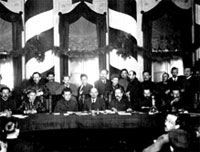
Until 1992, the Communist International materials at the Russian State Archive of Socio-Political History (RGASPI) in Moscow were open only to selected scholars. Without a proper electronic catalogue the holdings comprising 22,000,000 pages written in over 90 languages were practically unmanageable. In 1992 Professor Hermann Weber, the well-known German historian, asked the Council of Europe to support the development of an electronic catalogue and digital archive to save the massive collection, now endangered by the political changes. On June 27, 2003 an electronic database containing 220,000 files and 1,000,000 digitized pages was introduced into the Research Room of RGASPI by INKOMKA, the international body set up to save the Comintern Archives.The English and Russian language database and digital content, which continues to grow, are not available online but can only be accessed from dedicated workstations at every INKOMKA member institution, including OSA Archivum since 1996. Sample images are available on the OSA Archivum website.

